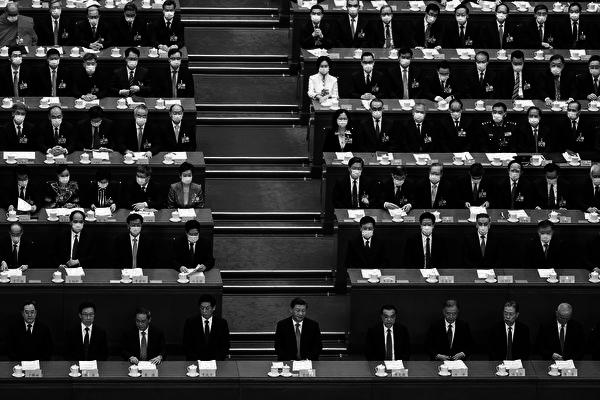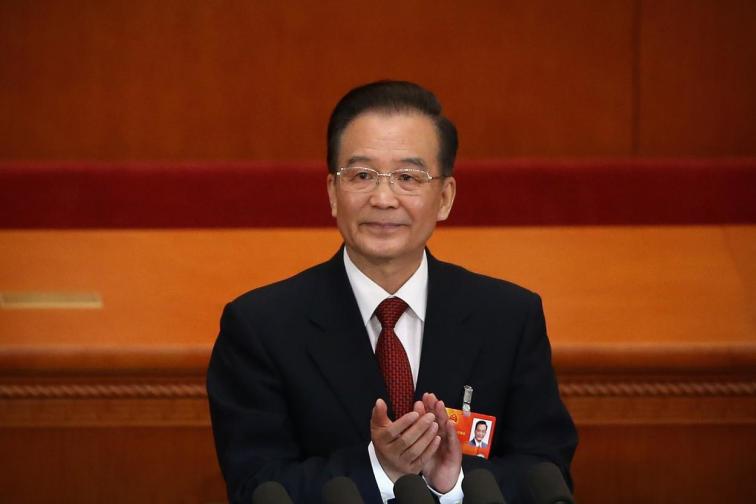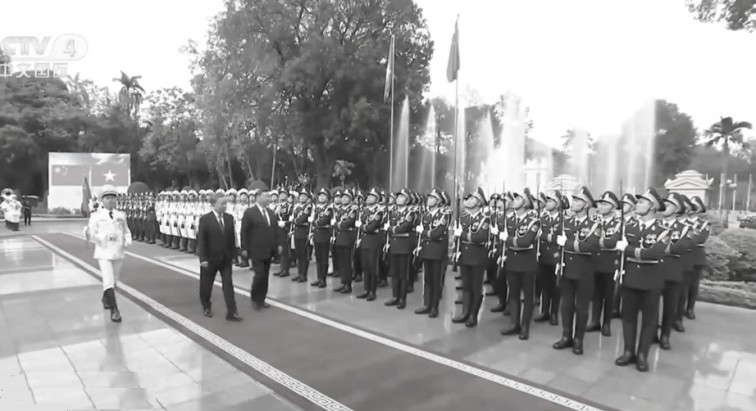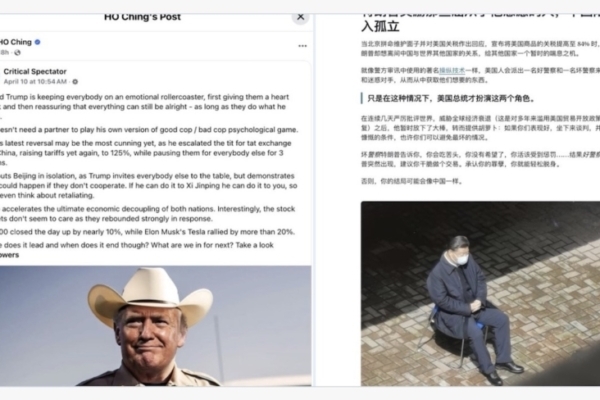On March 5, 2023, CCP leaders attended the opening session of the National People's Congress.
[People News] Asia Sentinel, on July 10, published an article stating that Xi Jinping is losing power, with the authority being redistributed among senior Communist Party officials. Willy Lam, a senior fellow at the U.S.-based Jamestown Foundation, remarked that although Xi might remain the nominal leader of the Chinese Communist Party (CCP) for several more years, his actual power will gradually decline, eventually rendering him a figurehead.
1. The Four Major Forces Challenging Xi Jinping
In an article titled "Four Groups Challenging Xi Jinping", Willy Lam outlined the four main forces confronting Xi:
-
Retired Politburo Standing Committee Members:
These include Zhu Rongji, Wen Jiabao, and Li Ruihuan, who have openly criticised Xi. However, they lack the formal power to remove him. -
Overseas 'Princelings':
These are the descendants of former CCP leaders who leverage powerful political and business networks. Collaborating with foreign intelligence agencies, they have gathered a significant amount of compromising material on Xi, though their next moves remain unclear. -
Military Vice Chairman Zhang Youxia:
After his subordinates Wei Fenghe and Li Shangfu were dismissed, Zhang’s behaviour became notably unusual. The downfall of Miao Hua and He Weidong is widely seen as Zhang’s effort to purge Xi’s military allies. Still, due to his age and the entrenched belief that “the Party commands the military,” Zhang is unlikely to topple Xi. -
Mass Protests:
Radio Free Asia reported that from June 16 onward, 21 mass protests broke out across China over just four days. These occurred in over ten provinces and cities, including Guangdong, Fujian, Hunan, Shandong, Shaanxi, Shanxi, Hebei, Jiangsu, Guizhou, Qinghai, Gansu, Hubei, Beijing, and Shanghai. Protesters raised concerns over unpaid wages, benefit cuts, housing issues, forced demolitions, and the suppression of petitioners. Some 2024 incidents have even involved violent confrontations between demobilised veterans and police using homemade weapons.
2. Who Really Governs Amid the Chaos?
Asia Sentinel cited insider reports that during the U.S.-China trade talks held in London from June 10–11, 2025, Chinese officials did not report to Xi Jinping, but rather to He Lifeng, the First Vice Premier of the State Council, who led the delegation.
According to sources, this meeting was a pivotal moment for the U.S. government to observe who truly holds power in China and how CCP decision-making operates. The Chinese state media avoided disclosing key details, likely to spare Xi embarrassment. This suggests that high-ranking Party members view He Lifeng as the actual decision-maker. The implication supports analyst Gordon Chang’s June statement on Fox News that Xi has lost control, not mere speculation.
Notably, after trade negotiations in Geneva (May 11–12) and London (June 10–11), He Lifeng made no mention of Xi or “Xi Jinping Thought” in public statements.
Further evidence came on July 9, while Xi was inspecting Shanxi province. On that same day, several appointments and dismissals were announced: Appointments: Wu Zeng as Vice Minister of Justice; Yuan Xiaoming as Assistant Minister of Commerce; Li Jinhua as Deputy Director of the National Park Administration; Sun Shuopeng as Director of the National Ageing Committee; Yang Weilin as Vice Minister of Public Security. Dismissals: Vice Ministers of Public Security Chen Siyuan and Sun Maoli, along with four other senior officials.
The Public Security Ministry’s latest announcement did not refer to Wang Xiaohong as Minister, despite his former role as Xi’s personal security chief and the man who oversaw the security of Xi’s daughter.
A historical parallel was drawn: during the late Cultural Revolution, Hua Guofeng, then First Vice Premier, played a key role in ousting the Gang of Four. By analogy, He Lifeng, as First Vice Premier, might likewise lead a movement to oust Xi.
3. Economic Collapse and Security Governance: Why Xi Grows Distant from the People
The Atlantic Council had earlier predicted that Xi Jinping would not introduce new economic reforms during the 2024 CCP Third Plenary Session, because he intentionally wants Chinese citizens—especially youth—to “endure hardship” for the sake of national ideals. This reflects his emphasis on national security over economic growth, driven by intensifying global competition.
Japanese commentator Kazunari Nakazawa believes Xi’s instability in power since his third term began has led to psychological delusions, causing him to rule increasingly through national security.
Deutsche Welle reported that the CCP’s security apparatus has expanded significantly. After the new anti-espionage law was enacted, security logic began infiltrating economic policy, placing heavy pressure on market activity and the investment climate.
As economic performance underpins regime legitimacy, letting national security override economic strategy has produced “hyper-securitisation,” stifling the market and potentially sabotaging growth. Since economic development is the CCP’s primary claim to legitimacy, a stalled economy is likely to trigger public dissatisfaction.
4. Japan Also Discusses Xi’s Fall
On July 8, Japan’s TBS TV aired a segment on Xi Jinping’s loss of power, covering multiple scenarios. Compared to U.S. think tanks, Japan's coverage even addressed Xi’s health concerns. During March’s Two Sessions, Xi was seen grimacing while drinking water, interpreted as difficulty swallowing. He needed both hands to push himself up, suggesting heart issues. During a visit to Kazakhstan, an “L-shaped wound” was visible on his head, seen as evidence of minimally invasive brain surgery.
These signs point to serious health problems. If verified, then internal Party calls for him to relinquish power would proceed more naturally. Notably, He Lifeng is scheduled to visit Japan on July 11.
With the economy in decline and people suffering, many in China hope for a political turning point.
The Epoch Times concluded in its article "Dusting Off the Secrets: The CCP’s Most Classified Party History" that the CCP is a “descendant of Satan,” and we are being ruled by demons. The materialism of communism is the root cause of society’s descent into desire, depravity, and sin. In the face of dramatic societal change, people must recognise the true nature of communism, break free from its ideological chains, and return to traditional culture to safeguard the future of themselves and their descendants. △
(Originally published by People News)











News magazine bootstrap themes!
I like this themes, fast loading and look profesional
Thank you Carlos!
You're welcome!
Please support me with give positive rating!
Yes Sure!